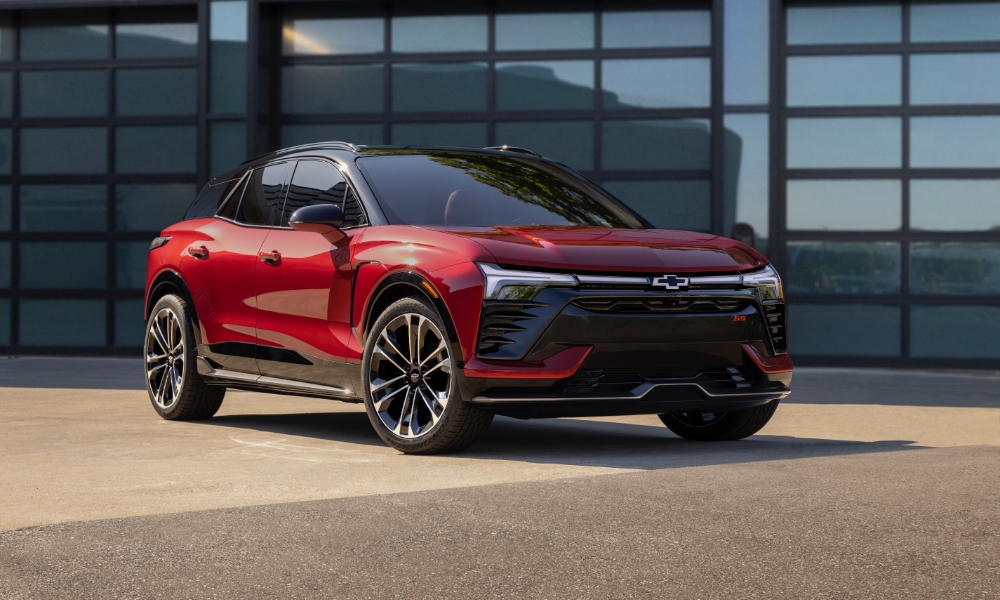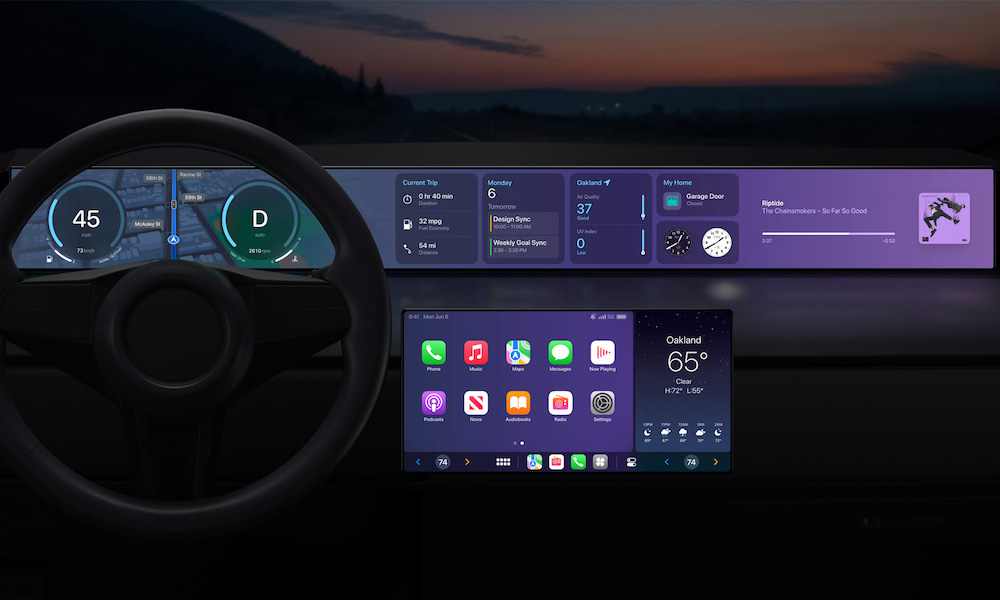GM Is Phasing Out CarPlay in Favor of a Custom Google Infotainment System
 Credit: Chevrolet / GM
Credit: Chevrolet / GM
Toggle Dark Mode
As Apple’s new CarPlay 2.0 is on the cusp of arriving in new car models later this year, it looks like General Motors (GM) is taking a step back from smartphone-powered solutions in an attempt to forge its own path.
However, it won’t be blazing that trail entirely on its own. Instead, while GM will be ditching Android Auto along with Apple’s CarPlay, the carmaker is hooking up with Google to help it build a custom infotainment system more suited to its needs.
According to Reuters, GM plans to start phasing out both CarPlay and Android Auto, starting with the 2024 Chevrolet Blazer before expanding it to more of its future electric vehicles (EVs).
It’s a somewhat unusual move in an industry where most companies have come around to embracing CarPlay and Android Auto, but it’s also not entirely surprising as automakers look for ways to exert more control over their in-car systems.
In GM’s case, it’s also a bit ironic, as its Chevrolet brand offered some of the broadest support for CarPlay and Android Auto across its entire vehicle lineup. However, Reuters notes that GM wants to build an infotainment system that “will be more tightly integrated with other vehicle systems such s GM’s Super Cruise driver assistant,” something that CarPlay and Android Auto can’t offer.
While Apple’s next-generation CarPlay 2.0 promises to deliver that kind of integration, it may have come too late. GM’s new platform has reportedly been in development with Google since 2019, so both companies have invested a lot of time and money already.
However, it also may not have made a difference, as one of GM’s goals is to decouple its in-car systems from smartphones, as GM’s chief digital officer, Mike Himche, said in an interview with Reuters.
We have a lot of new driver assistance features coming that are more tightly coupled with navigation. We don’t want to design these features in a way that are dependent on [a] person having a cellphone.
Mike Himche
Since Google is designing the new systems, drivers will still get an Android Auto-like experience, including Google Maps and Google Assistant. These will be built directly into the vehicle, which will presumably need its own 5G connection to keep everything up to date.
Not surprisingly, GM plans to offer this as a subscription model, although the company said that buyers will get at least a basic level of access for eight years at no additional cost. Enhanced services that include access to apps like Spotify and Audible may cost extra.
In fact, GM is counting on that. GM Chief Executive Mary Barra told Reuters that the company hopes to make $20–25 billion annually from subscriptions alone by 2030.
GM isn’t the first carmaker to try and make money from a subscription-based model, although at least it’s trying to do so with its own infotainment systems rather than charging for someone else’s. A few years back, BMW tried putting CarPlay behind a subscription paywall. Unsurprisingly, that went over like a lead balloon with BMW fans, and the automaker reversed its decision only six months later.
Depending on how GM packages this, it may be in a better position to justify a recurring subscription fee. Since GM doesn’t want its system to rely on a smartphone in any way, it will have to bundle in a data plan, which most folks are already accustomed to paying for.
The good news is that the new system is being designed exclusively for GM’s EV models, where it hopes it can collect metrics on how its customers drive and charge those vehicles. While GM expects to phase out production of new combustion vehicles by 2035, for now, those vehicles with traditional gasoline engines will still include Apple CarPlay and Android Auto. It also has no plans to disable those features in any of the EVs it’s already sold to date, and the newer EVs will still include Bluetooth support for listening to music and making calls from your iPhone and Android smartphone.







